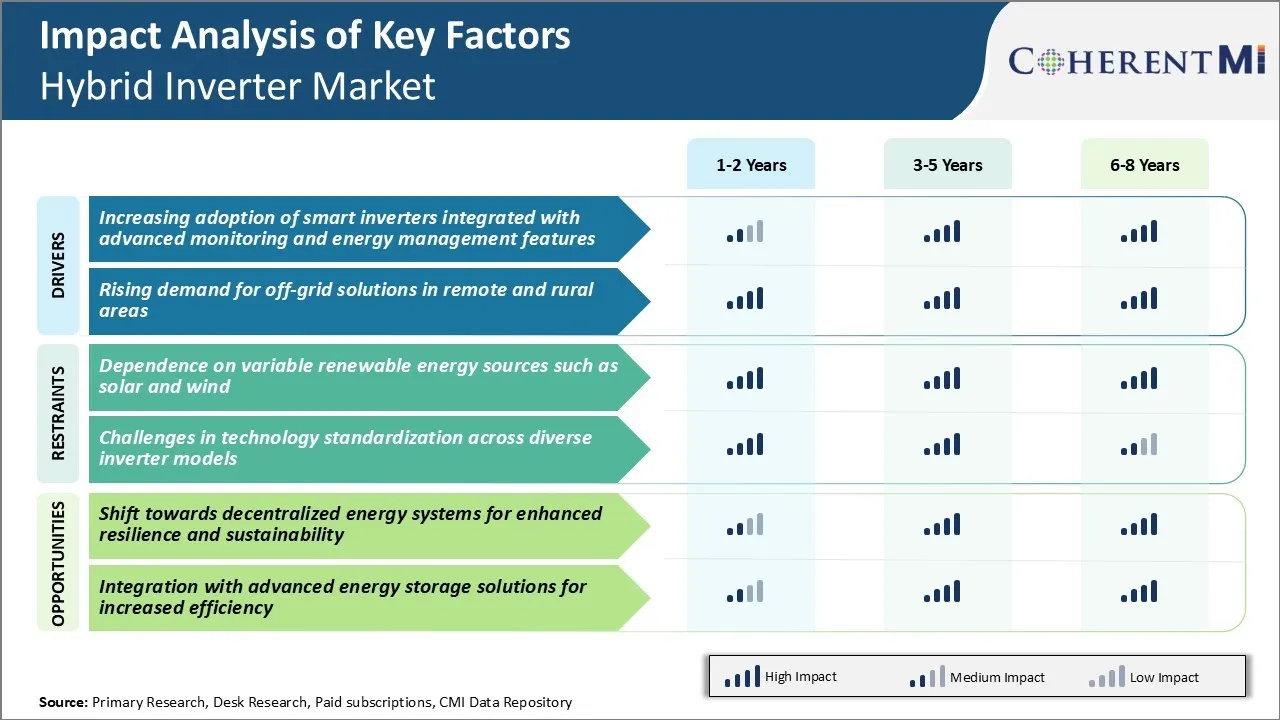Hybrid Inverter Market Trends
Market Driver - Increasing Adoption of Smart Inverters Integrated with Advanced Monitoring and Energy Management Features
The hybrid inverter market is witnessing a steady rise in demand for smart inverters which are integrated with advanced monitoring and energy management features. These smart inverters offer remote monitoring of systems along with control over energy flow. Homeowners and commercial establishments alike are recognizing the convenience and cost benefits of installing inverters that come equipped with smart technology.
This level of control and visibility allows people to better manage their energy consumption. They can adjust appliance usage according to power availability and maximize self-consumption from solar or battery storage. For commercial facilities, smart hybrid inverters delivering automated demand response are helping qualify for incentives on lowering utility bills. Manufacturers are additionally realizing the opportunity in bundled offering of solar PV, batteries, and intelligent inverters integrated as a renewable energy solutions package.
The smart features are proving handy not just for users but also for installers and electricians offering maintenance services. Growing customer preference for smart hybrid inverters integrated with monitoring and energy management is fueling demand in the hybrid inverter market.
Market Driver - Rising Demand for Off-grid Solutions in Remote and Rural Areas
Access to reliable electricity continues to be a massive challenge in many remote and rural regions around the world. Connecting far flung villages and towns to the central grid involves huge infrastructure investment which utility providers are often not able to support. These unelectrified or poorly electrified areas present a large untapped market for hybrid inverters to provide off-grid and decentralized renewable power.
International organizations and private donors are also ramping up support through targeted funding and initiatives. Hybrid inverters emerge as a key technology enabler for energizing some of the most underserved rural geographies of the world.
Local entrepreneurs and small businesses moreover see opportunity in installing and maintaining hybrid inverter based mini-grids in their areas as a reliable source of income. Good household access to electricity allows for enhanced lives and livelihood activities even in faraway villages.
The scale of decentralization required to meet global energy access goals for all translates to healthy market demand for capable hybrid inverters. Their application avoids dependence on expensive transmission and fuel lines, benefitting communities as well as boosting the industry at large.

Market Challenge - Dependence on Variable Renewable Energy Sources such as Solar and Wind
One of the key challenges faced by the hybrid inverter market is its dependence on variable renewable energy sources such as solar and wind. The intermittent nature of these renewable sources makes the generation of power inconsistent and unreliable. Solar power generation depends on the availability of sunlight during the day and varies considerably depending on the weather conditions such as cloud cover.
Similarly, wind power generation fluctuates considerably based on the wind speed and direction. This variability in power generation poses integration challenges for hybrid inverters that combine both renewable and conventional power sources. The inverters need to balance the demand with supply constantly as the renewable input keeps changing.
Utilities also view the intermittent generation as a challenge for grid stability and prefer firm generation sources that can guarantee consistent base load power. Overcoming the current technological limitations in energy storage will be critical for hybrid inverter market players to manage the variability and provide reliable output.
Market Opportunity - Shift towards decentralized energy systems for enhanced resilience and sustainability
One significant opportunity for the hybrid inverter market is the global shift towards more decentralized and distributed energy systems. There is a growing realization that distributed energy resources enhance energy resilience by supplementing centralized utility-scale generation. They allow communities and businesses to meet part of their energy needs locally through renewable sources supported by hybrid inverters.
Distributed hybrid systems also make energy access possible in remote off-grid areas not connected to the centralized grid. They play a vital role in rural electrification programs of developing nations. The modular nature of these decentralized systems also makes them easier to install and expand capacity incrementally.
As concerns around sustainability grow, hybrid inverters contribute to reducing emissions through increased reliance on clean local renewable sources rather than dirty centralized power plants. Governments around the world are implementing supportive policies to encourage distributed generation, presenting lucrative market prospects for hybrid inverter manufacturers.